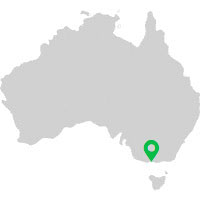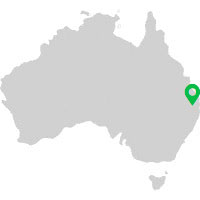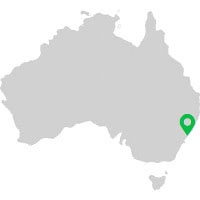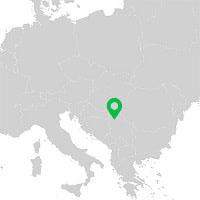

Choosing keywords or keyword phrases to use to optimise your website is easy. The burden, however, lies in determining if they are effective or not. You may have to do a lot of trials and errors before you can finally say that you are on the right track when it comes to your use of keywords. If you do not wish to waste a lot of time for this, here are the things to do:
1. Research for the Best Keywords for Your Website
You need to know what the commonly searched keywords in your industry are. Take the time to research them over the Internet and make an analysis. Using log statistics programs, you have to look for data that reveals the keywords used by your visitors to find your site. This will give you an idea of how your keywords should be phrased.
2. Make a List of Keywords and Keep Track of Their Progress
In your first attempt to use keywords on your website, complete your first list. Include them in the content title and body, as well as in the page title and headings. After one or two weeks, check the activity of your site. Was there a record of increase in traffic? If no, you will have to create and use your second list of keywords and disregard your first. Obviously, they are not useful for your SEO campaign. On the other hand, if you notice an improvement, analyze if the number is continuously increasing or fluctuating. If it is constantly moving up, you are a success (but you still have to continue tracking the progress weekly). If it is fluctuating, you may need to add new keywords, along with the ones that exist.
3. Avoid Generic Keywords
Do not use generic terms. For example, never use “gym tools” or “gym equipment” as your keywords if your business is about it. Surely, a lot of websites use these terms. Take to be specific, like “cheap treadmill”, “durable exercise ball”, “exercise ball for women”, “kettlebell for men”, “gym equipment reviews” and others. As you vary your keywords, search engines will think that all these belong to different websites. Hence, you can be indexed for various searches.
4. Use Helpful Keyword Tools to Make Your Life Easy
Several tools are available right now to aid companies in their SEO project. One of them is the Google Wonder Wheel. This supplies you with more specific keywords to use. Type the generic term and it shows you phrases that you have not thought of but will make you say “Yes, that is right!”
5. Place Your Keywords where Search Engines Will Find Them Easily
Yes, even the placement of your keywords is important. They need to be found where search engines expect them to be: headings, Alt tag, title tag, page title, description meta tag, URL and others.
6. Regularly Check the Status of Your Keywords
Do not allow yourself to be left behind. You should always track the activity of your website, as well as check the status of your keywords.
7. Relevance Over Density
Most pages will require a large number of keywords in order to fully serve their function. Overdoing the number of keywords can be hazardous towards your page traffic. Google and other search engines will penalize you if you cram too many keywords into a single website page. It would be much more effective if you made the keywords as relevant to your business as possible.
8. Organise the Keywords
You can’t craft a single page in order to use a keyword. On the other hand, you can’t pack a bunch of keywords onto a page if they aren’t related to one another. This won’t help search engines find the relevant words that trigger an increase in page views. You need to have terms that are at least tangentially related to one another.
In order to achieve this, you need to focus on keyword grouping and organization. Create a list of related keywords that you plan on using on a specific page. Make sure that there is quite a bit of variety in these words, but keep them related to a single topic. Once you’ve created a small and manageable list of keywords, you can start with the content creation process. With this method, you can use a bunch of keywords while still maintaining the integrity of the page.
9. Come up with a Creative Set
Search engines don’t just group relevant keywords when it comes to organizing searches. The algorithm sees everything as an intricate web of words that are all related to one another. Researching requires going a step further. Instead of just looking for words that are within the topic of your page, you need to broaden your horizons.
Find related terms that could be grouped with your own keywords to create a commonly-searched item. Google.com has a list of related search terms that might come in handy. This list can inspire you to create your own set of additional keywords.
10. Decide on the Form
Keywords can take several different forms, depending on the number of words that are present. There are two types of keywords that are most commonly used for ranking in search engines: head terms and long-tails. Colloquially, head terms are referred to as short-tail keywords which are usually one to three words long. Long-tail keywords contain three or more keywords within them.
When you decide to build your keyword list, you should remember to add both long-tail and short-tail keywords into the mix. This is because you require a diverse keyword strategy to attract high rankings in a search engine. Short-tail keywords are incredibly generic, but they allow you to reach a wide audience within the targeted topic. On the other hand, you’ll find that long-tail keywords are great for getting more specific searches to lead to your website.
11. Know Your Goal
The goal of optimising keywords isn’t to trick search engines, it’s to match the language your website uses to the language that people searching use. Keep this in mind when you’re compiling your list of long-tail keywords.
You think you have done your best efforts to optimise your website but still, you are not seeing any significant progress in your traffic. Analyze your keywords then. They may be the ‘culprit’. Remember, keywords are the ones that bring your search engines and visitors closer to your site. When users get to visit your site, they are either ready to make a purchase or looking for more information to help them decide to buy. Therefore, you ought to have this opportunity. Your keywords must be effective to assist in this process.


How to Develop a Unique Digital Marketing Strategy for E-Commerce


How to Generate Traffic from Facebook Page








Dunavska 13
21000 Novi Sad, Serbia